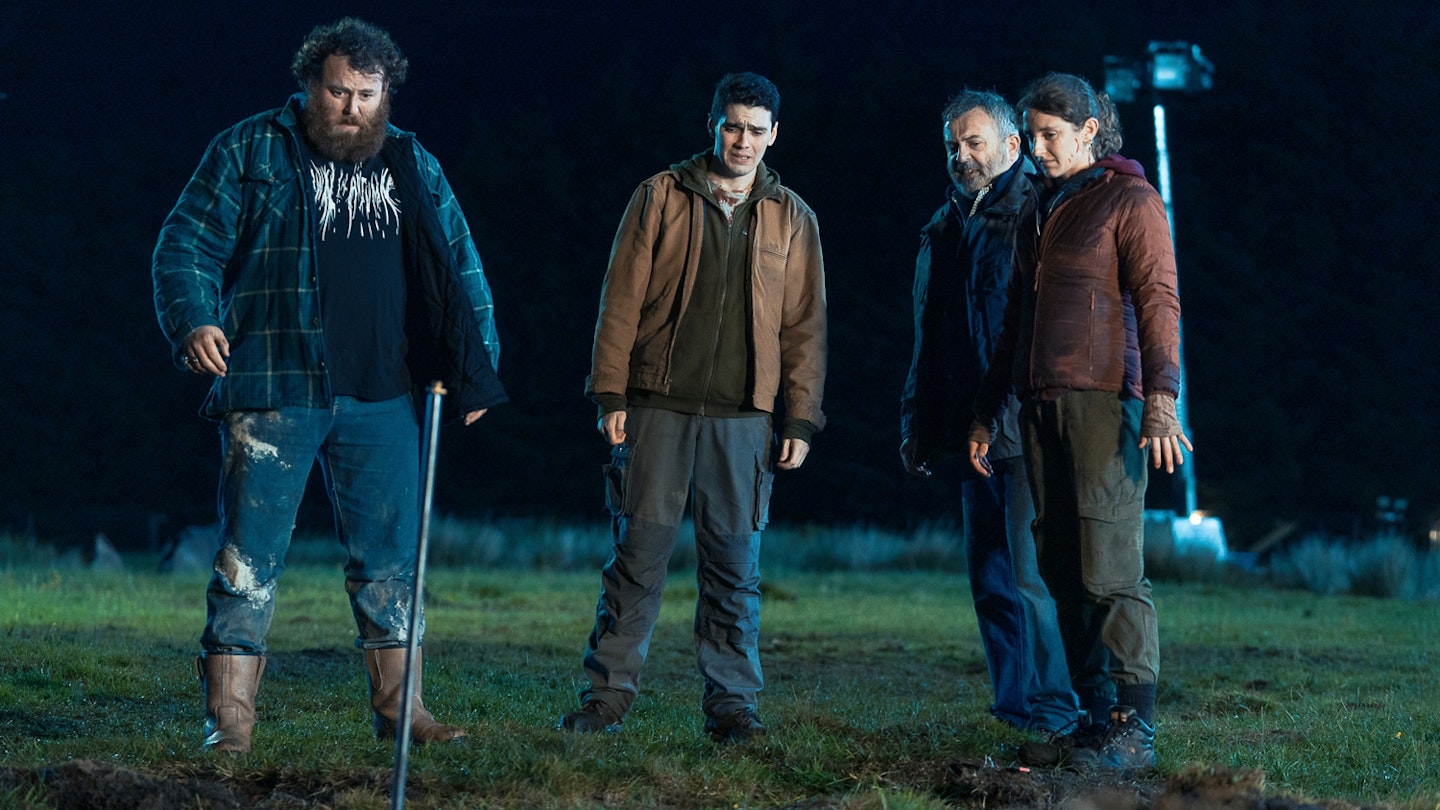In recent years, there has been a reemergence of inventive horror-comedies with films like The Wolf Of Snow Hollow, One Cut Of the Dead, and What We Do In The Shadows, each giving fresh (after)life to classic horror archetypes as classics like Fright Night and An American Werewolf In London did in the genre’s heyday. Adapted from his 2013 short, Irish writer-director Chris Baugh’s Boys From County Hell is the latest in this trend, a playful yet surprisingly poignant vampire yarn that takes on folklore, familial turmoil, and the perils of poor town-planning with aplomb.

Following a cold open involving two OAPs whose cosy TV tea turns into a gruesome bloodbath – domesticity and devilry will share a space to chilling and comedic effect throughout – we backtrack to two months earlier. Lifelong pals Eugene (Jack Rowan) and William (Fra Fee) are stuck in a rut of day drinking and spooking gullible tourists while dreaming of escaping their hometown of Six Mile Hill, a sleepy Irish village shot in atmospheric wide angles and shadows by DP Ryan Kernaghan. When Eugene’s crotchety, stick-in-the-mud roadworker dad (Nigel O’Neill) agrees to help build a highway through their village, disturbing the cairn-guarded grave of ‘real Dracula’ Abhartach, tragedy — and a bull — tear Eugene and William apart. Bloodshed and banter follow as father, son, and a small band of reluctant road workers are forced to reckon with resident evil and their own inner struggles.
The film’s monster-mashing, complete with decapitations, sunlight scorching, and some truly inspired pointy-thing-thrusting are all handled with real conviction. Baugh’s greatest success however is in making a vampire movie where the humans aren’t just murder-ready meatsacks. He imbues pathos and empathy in each of his characters, allowing grief and regret to underpin the visceral thrills of arterial spray. This approach, along with the commitment of an excellent ensemble cast – Derry Girls’ Louisa Harland stands out – helps Baugh’s excellent film create complexity in a sub-genre often dismissed for lacking nuance, breaking new ground for more thematically involved genre fare in the future.
